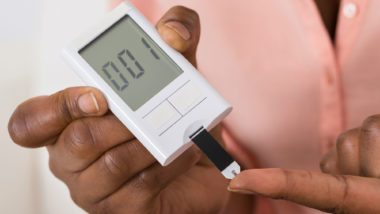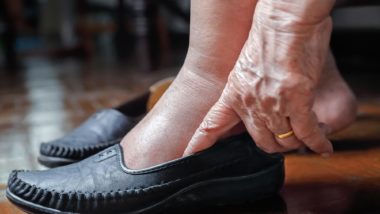Top Class Actions’s website and social media posts use affiliate links. If you make a purchase using such links, we may receive a commission, but it will not result in any additional charges to you. Please review our Affiliate Link Disclosure for more information.

Additionally, the U.S. Food and Drug Administration has received numerous adverse event reports indicating a link between the use of canagliflozin, another medicine in the same class as Jardiance and Farxiga, and amputations of the toes, feet and in some cases, the lower legs of patients with diabetes. These risks affect primarily affect older men suffering from peripheral artery disease or dermal ulcers of the foot, and/or are obese.
About Jardiance and Farxiga
Jaridance and Farxiga are part of a class of diabetic medications known as gliflozin drugs, or sodium-glucose co-transporter-2 (SGLT-2) inhibitors. Canagliflozin was the first drug of this class, first approved in March of 2013, then sold under the brand name Invokana. It’s also combined with metformin in the medication Invokamet. These medications are meant to treat diabetes by preventing the kidneys from reabsorbing glucose and thereby lowering the body’s blood glucose levels.
At a meeting of the FDA Endocrinologic and Metabolic Drugs Advisory (EMDA) Committee the previous January, Dr. Sidney Wolfe, an internal medicine specialist and consumer advocate, warned that there was “no evidence of any improved clinical outcomes” with Invokana, and that “surrogate efficacy needs to be balanced against a number of serious safety signals identified in the clinical trials.”
Complications Linked With SGLT-2 Inhibitors
SGLT-2 inhibitors like Jardiance and Farxiga have been linked with a number of major side effects. Any medication will come with certain mild side effects, and these medications are no exception. Minor complications of SGLT-2 inhibitors include lightheadedness, dizziness, and frequent urination.
Unfortunately, these drugs have also been linked with more serious, and potentially even life-threatening risks.
Invokana (canagliflozin) has since been associated with numerous side effects and injuries, including kidney failure, cardiovascular events, ketoacidosis, osteoporosis, urinary tract infections, bone fracture, flesh-eating genital infection, and most recently, diabetes amputations. Jardiance (empagliflozin) and Farxiga (dapagliflozin) have since been linked to many of the same problems.
The BMJ Diabetes Amputations Study
The original FDA warning about canagliflozin-related lower limb amputations applied only to Invokana and Invokamet. The recent study published in the BMJ was conducted in Scandinavia and involved records of more than 17,000 patients, most of whom were taking Jardiance or Farxiga for diabetic control.
A meta-analysis of those records indicated that patients taking either of those medications were twice as likely to lose a limb as those being treated with gliptin drugs (DPP-4 inhibitors) such as Januvia or Onglyza.
While the results of the study were preliminary and there is a need for further investigation into the issue of SGLT-2 inhibitors and diabetes amputations, it indicates that type-2 diabetics at risk for lower limb amputation need to be proactive and take precautions. One of the co-authors of the Scandinavian study wrote that their findings “…should lead to a further emphasis on the importance of counseling patients on routine preventative foot care.”
How SGLT-2 Inhibitors Work
Researchers believe the reason that SGLT-2 inhibitors such as Jardiance and Farxiga may lead to an elevated risk of diabetes amputation has to do with the medication’s mechanism of action. In simple terms, drugs of this class prevent the reabsorption of excess glucose by the kidneys.
As a result, instead of releasing it back into the bloodstream, this extra glucose (blood sugar) is excreted through the urine. Because of increased urination, the patient becomes dehydrated, which in turn decreases the volume of blood. This is why patients with compromised circulation are at added risk for losing a limb.
What Did The Drug Makers Know?
A growing number of patients who have suffered from these or other complications after taking SGLT-2 inhibitors like Farxiga or Jardiance have begun turning to litigation to pursue compensation. So far, hundreds have filed litigation over Invokana alone. Pharmaceutical manufacturers Johnson & Johnson, Bristol-Myers Squibb, and AstraZeneca are all facing similar litigation over these complications.
Current legal actions against the manufacturers of these medications allege that the side effects were known, but clear warnings were not given. Patients who underwent a lower extremity amputation after taking Jardiance or Farxiga may have similar legal claims. Manufacturers are now required to include warnings from the FDA about many of these risks, but these warnings are too late for those who may have already begun suffering from these serious health complications.
Can I File a Lawsuit?
If you or someone you love has suffered from side effects of Jardiance, Farxiga, or another SGLT-2 inhibitor, you may be able to file a lawsuit and pursue compensation. Of course, filing a lawsuit cannot take away the pain and suffering caused by these complications, but it can at least help to alleviate the financial burden incurred by medical expenses, lost wages, and more.
If you or a loved one experienced diabetes amputation after taking Jardiance or Farxiga, you may have a legal claim and may be eligible to seek compensation from the drug maker for your medical and other expenses. Fill out the form on this page now to see if you qualify!
ATTORNEY ADVERTISING
Top Class Actions is a Proud Member of the American Bar Association
LEGAL INFORMATION IS NOT LEGAL ADVICE
Top Class Actions Legal Statement
©2008 – 2024 Top Class Actions® LLC
Various Trademarks held by their respective owners
This website is not intended for viewing or usage by European Union citizens.
Get Help – It’s Free
Join a Free Jardiance, Farxiga Diabetes Amputation Class Action Lawsuit Investigation
If you qualify, an attorney will contact you to discuss the details of your potential case at no charge to you.
If you took Invokana or Invokamet, you do not qualify for this investigation. Click here to join a separate class action lawsuit investigation.
PLEASE NOTE: If you want to participate in this investigation, it is imperative that you reply to the law firm if they call or email you. Failing to do so may result in you not getting signed up as a client or getting you dropped as a client.
E-mail any problems with this form to:
Questions@TopClassActions.com.
Oops! We could not locate your form.












